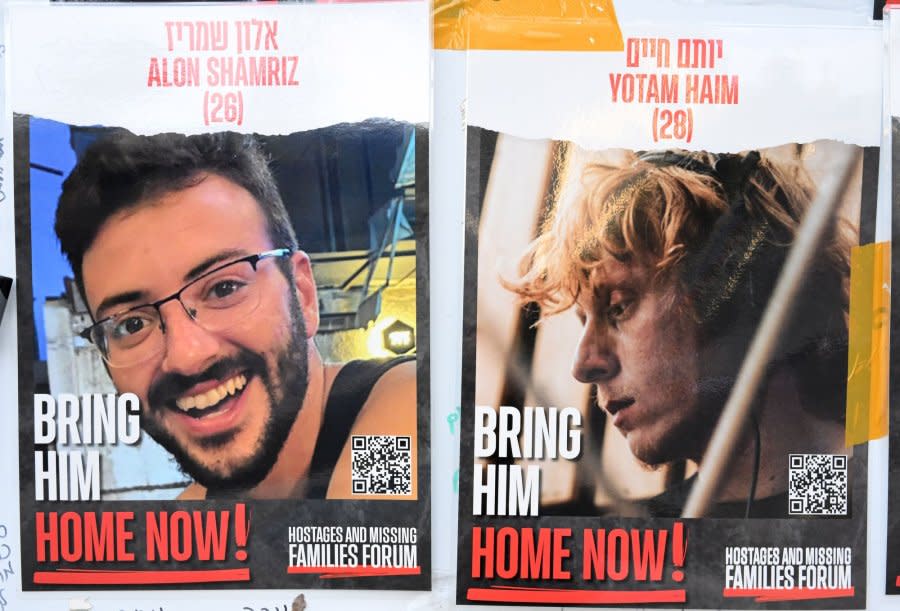IDF admits shooting deaths of three Hamas hostages 'could have been prevented'

Dec. 29 (UPI) -- The deaths of three hostages who were fatally shot by Israeli soldiers earlier this month "could have been prevented," the Israeli military admitted Thursday, while stating those responsible "carried out the right action to the best of their understanding."
The hostages -- Yotam Haim, 28, Alon Shamriz, 26, and Samer Talalka, 22 -- were shot and killed by Israeli soldiers in the Gaza City neighborhood of Shuja'iyya on Dec. 15 after surviving some 70 days as captives of the Hamas militant group.
The Israel Defense Forces said following the shooting that its soldiers had mistakenly identified the hostages as threats and subsequently opened fire.
On Thursday, the military revealed additional findings from its investigation into the incident, stating the three hostages were walking shirtless with one waving a white flag when they were shot at by an IDF soldier, who struck and killed two of them while the third one fled.
The report said the soldier had only limited visibility of the targets.
About 15 minutes later, the battalion commander heard shouts for help in Hebrew, and gave the order to hold fire while instructing the speaker to come forward. Two soldiers who did not hear their commander's order due to a nearby tank shot and killed the third hostage as he emerged from a building.
The Chief of the General Staff was presented with the findings earlier this week, and said Thursday in a statement that: "The IDF failed in its mission to rescue the hostages in this event. The entire chain of command feels responsible for this difficult event, regrets this outcome and shares in the grief of the families of the three hostages."
"The Chief of Staff determined that the hits on the hostages could have been prevented. Alongside this, the Chief of Staff clarified that there was no malice in the event, and the soldiers carried out the right action to the best of their understanding of the event at the moment."
In the investigation's conclusion, the military said the soldiers had "experienced complex combat situations in the days preceding the incident and were in a state of high alert for a threat."
The statement continues that the soldiers were not anticipating coming into contact with hostages during the ground operation and had previously "encountered deceptions by the enemy and attempts to draw them into pits and buildings rigged with explosives," suggesting this is what prompted the shooting of the third hostage.
"The shooting at the hostages should not have occurred -- this shooting did not match up to the risk and the situation. However, it was carried out under complex circumstances, and in intense combat conditions under a prolonged threat," the chief of staff said.
The families of the victims have been presented with the investigation's findings, it said.
Some 240 Israelis were taken hostage by Hamas during the militant group's Oct. 7 attack on Israel that started the now nearly three-month-old war.
About 1,200 Israelis were killed in that initial attack, and Israel has responded with a ground invasion and incessant bombing of the Palestinian enclave of Gaza, killing more than 21,000 people, mainly women and children.

 Yahoo News
Yahoo News 
